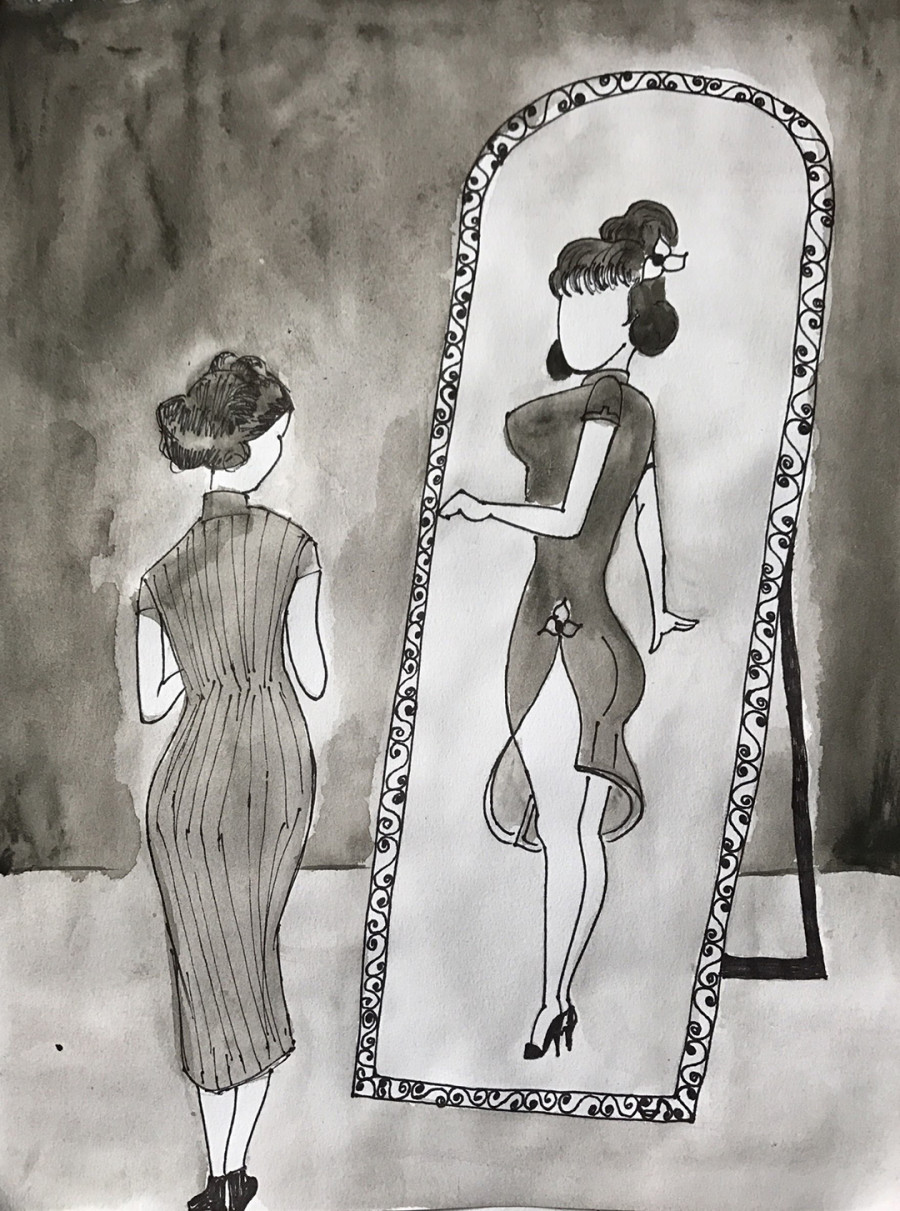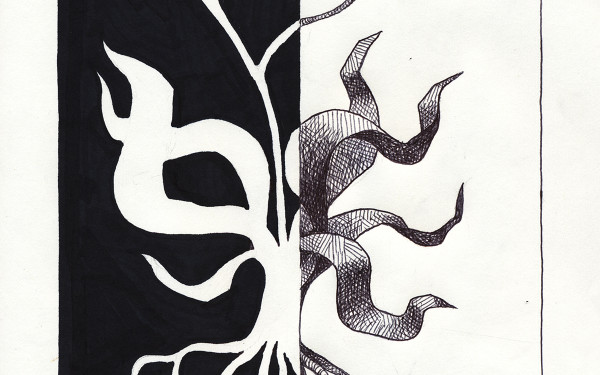Special Issue: Across the Line
On Systemic Violence, Finding Support, and Learning to Trust Your Instincts
As a Chinese international student, I first thought the acts of kissing cheeks or holding hands with strangers were traditional, albeit weird, parts of Canadian culture. Then, I learned that I was once taken advantage of.
I am an international graduate student at Concordia University. One year ago, after a 24-hour flight, I landed here with ideas of freedom, friendliness, civilization and harsh winters. However, “yellow fever” was what I first encountered on just my second day in Montreal.
It was on Aug. 29, 2015. Attracted by two red double-decker buses parked near Dorchester Square, I stepped inside the tourist information centre. That’s where I first experienced harassment.
His name was Sam, and he worked as the storekeeper of the small souvenir shop. He was middle-aged, average height, and wore a grey knitted hat. I thought I had erased every memory of him because of how creepy the experience was, but I can still remember every little detail.
Like many men with “yellow fever,” Sam masked himself with unbelievable friendliness. He greeted me with “ni hao,” the Chinese word for hello. He offered to help me with English and French. He comforted my anxiety of the new life ahead. To be honest, given that I was considerably anxious about starting my life here without the support of family and friends, I was touched by his tenderness. I did not have anyone, so I trusted him easily. It turned out to be a mistake.
Asian women, especially East Asian women, are often seen as hyper-sexual, sexy, exotic, subservient and eager to please, according to Dr. Alice Ming Wai Jim, a Concordia art history professor specializing in Asian and Asian-Canadian art.
Asian fetishism is a sexist and racist issue related to a larger discourse called “Orientalism.” Coined by Palestinian-American scholar Edward Said, “Orientalism” is the idea that Euro-America sets the standard while all other cultures are represented as exotic and inferior.
During my encounter back in 2015, Sam asked about my ring. When I told him it was a couple’s ring with my ex-partner in China, he replied, “I can give you one as well if you want.” I took it as a joke, even though I felt slightly awkward. He offered twice more.
_“I used cultural differences to explain my discomfort.” _
Finally, as I was about to leave, Sam hugged me and kissed me on the cheek.
Again I felt awkward, but I wondered if it was how Canadians said goodbye. In Chinese culture, it would be inappropriate to turn down someone’s kindness. I used cultural differences to explain my discomfort.
My experience is not uncommon. Many international students unfortunately suffer from physical, psychological and sexual harassment, according to Kelly Collins, the manager of Concordia’s International Student Office.
The ISO often helps students with cases of harassment. It cooperates with the Sexual Assault Resource Centre, Health Services, and security at Concordia to connect international students with the right resources.
After the incident at Dorchester Square, I visited the ISO for support. I cried when the advisor told me that Sam had taken advantage of me—not out of sadness or disappointment, but out of relief. My intuition was right—I should have trusted myself. The end of this story, however, is only the start of another. When I walk the streets of Montreal now, sometimes middle-aged men try to talk to me and get my number. What I see in their eyes resembles what I saw in Sam’s.
Racial fetishization can be violent. If it involves unfair treatment or discriminatory practices against a person, it’s a form of racial harassment. It should be called out and reprimanded according to anti-harassment and anti-discriminatory policies that should be in place, according to Jim. She said Concordia needs an equity office for discrimination based on one’s gender, race, sexual orientation, or disability.






